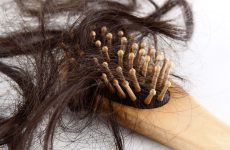We’ve all been there—waiting for our hair to grow, checking in the mirror, only to find it looks the same month after month. Frustrating, right? It’s like watching a pot of water that just won’t boil. But what if there’s a reason your hair isn’t growing the way you expect? Whether it’s a lack of nutrients or stress playing a role, understanding what’s going on beneath the surface is key to unlocking that longer, fuller hair you’re after.
Common Reasons for Slow or Stalled Hair Growth
Now that we know how the hair growth cycle works, let’s look at what might be interfering with it. There are several factors that could be holding your hair back from reaching its full potential. Let’s explore some of the most common ones:
Poor Scalp Health
Think of your scalp as the soil where your hair grows. Just like a plant needs healthy soil to flourish, your hair needs a clean and well-nourished scalp to thrive. If your scalp is clogged with dandruff, excess oil, or even product buildup, your hair follicles can get suffocated, leading to slower hair growth or even hair loss.
Solution: Regular scalp treatments and gentle cleansing can do wonders. Use a shampoo that clarifies without stripping your scalp of its natural oils, and try massaging your scalp when you wash to stimulate blood flow. This helps nourish your hair follicles, giving them the nutrients they need to support healthy growth.

Nutritional Deficiencies
You are what you eat—and so is your hair! If your body is lacking key nutrients, it’s not going to prioritize hair growth. Nutrients like biotin, iron, zinc, and vitamin D play vital roles in keeping your hair strong and healthy. Without them, your hair might feel weak, brittle, and prone to breakage.
Solution: Make sure you’re eating a balanced diet full of whole foods like fruits, vegetables, lean proteins, and healthy fats. If you suspect you’re low on certain vitamins, talk to your doctor about getting your levels checked. Sometimes, a simple supplement can make all the difference in your hair’s growth journey.
Hormonal Imbalance
Our hormones control a lot more than we realize—including our hair growth. If your hormones are out of whack, your hair might not be growing the way it should. Conditions like polycystic ovary syndrome (PCOS), thyroid disorders, or menopause can all contribute to hair thinning or slow growth. Even hormonal changes during pregnancy or birth control can affect your hair.
Solution: If you think hormones might be the culprit, it’s worth discussing with a healthcare provider. They can help you regulate your hormone levels, which may, in turn, help your hair get back on track.
Stress
We all know stress can take a toll on our health, but did you know it can also affect your hair? When you’re under constant stress, your body releases a hormone called cortisol, which can push your hair follicles into the Telogen phase prematurely. This means more hair falls out and less hair grows back. It’s like trying to grow a garden during a storm—not exactly ideal conditions for thriving.
Solution: Finding ways to manage your stress is key. Whether it’s through meditation, yoga, or simply taking time to relax, reducing stress can help your body—and your hair—recover. A healthy mind often leads to a healthy body, and that includes better hair growth.
Overuse of Heat and Chemicals
It’s tempting to reach for the curling iron or hair dye to achieve that perfect look, but too much heat and chemicals can cause serious damage. Excessive use of styling tools, chemical treatments like perms or relaxers, and even tight hairstyles can weaken the hair shaft and cause breakage. If your hair is breaking faster than it can grow, you’re not going to see any length.
Solution: Try limiting heat styling to a few times a week, and always use a heat protectant. When it comes to coloring or chemical treatments, it’s best to space them out and give your hair time to recover in between. Protective hairstyles, like loose braids or buns, can also help prevent damage.

Genetics
Sometimes, slow hair growth just runs in the family. If your mom or dad experienced slow hair growth or early hair loss, you might too. While we can’t change our genes, we can still work with what we have.
Solution: Genetics may set the pace, but you can optimize your hair’s health by following the best practices for care. Use gentle products, nourish your scalp, and avoid stress or damage. Over time, you may notice that even if your growth isn’t lightning-fast, your hair will look and feel healthier.
Aging
As we get older, our hair naturally grows more slowly. The Anagen phase shortens, meaning your hair doesn’t stay in the growth phase as long as it used to. You might also notice your hair becoming finer and more fragile.
Solution: While we can’t stop time, we can still protect our hair as we age. Look for products that promote hair strength and fullness, like those containing keratin or collagen. Regular trims can help prevent split ends, and scalp massages can keep blood circulating to your hair follicles.
Tips for Encouraging Hair Growth
If you’ve identified what’s been holding your hair back, now it’s time to help it grow! Here are a few simple tips that can encourage faster, healthier hair growth:
- Scalp Massages – Massaging your scalp for just a few minutes each day increases blood flow, which helps deliver more nutrients to your hair follicles.
- Use the Right Products – Invest in shampoos, conditioners, and treatments that are gentle on your hair and scalp. Avoid harsh chemicals and prioritize ingredients that nourish.
- Regular Trims – It might seem counterintuitive, but regular trims can actually help your hair grow longer. Trimming off split ends prevents breakage and keeps your hair healthy.
- Consider Supplements – If your diet isn’t cutting it, consider taking a supplement specifically designed for hair health. Biotin, vitamin D, and collagen can all support growth.



